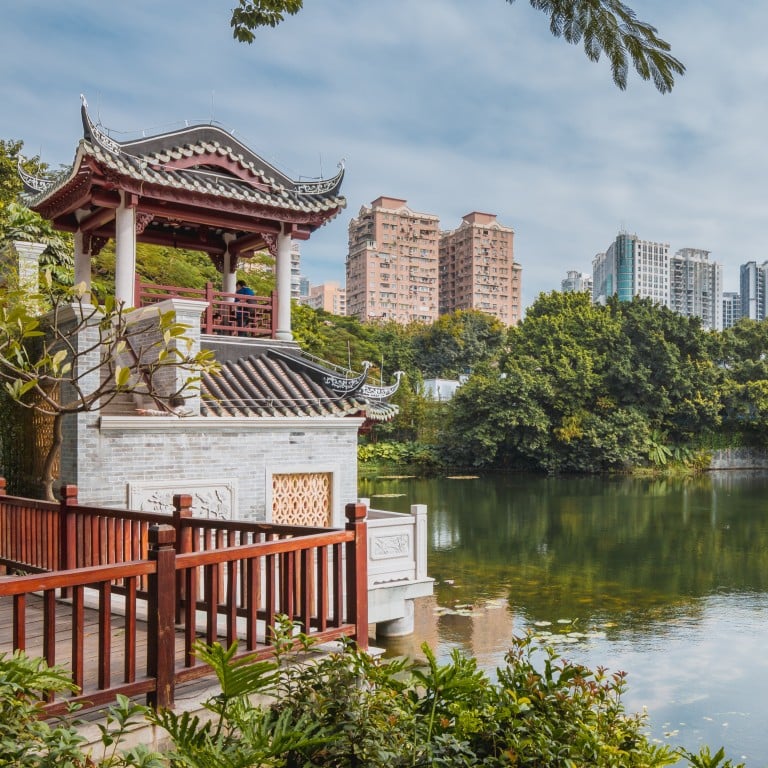
Elderly Hongkongers’ dreams of retiring in mainland Chinese cities scuppered by healthcare and transport concerns, survey finds
- Survey shows respondents prefer mainland cities to Hong Kong because elderly care homes are better, offer bigger living spaces and cost less
- Care for Hong Kong elderly is limited by land and manpower and situation is not ideal, says union federation leader
Nearly nine in 10 elderly Hongkongers want to live in mainland Chinese cities in the Greater Bay Area because the care homes are better, offer bigger living spaces and cost less, but many expressed concerns about the lack of affordable medical services and inconvenient transport arrangements, a survey has revealed.
The Hong Kong Federation of Trade Unions on Thursday released the survey conducted between June and July, which polled 2,004 residents aged 55 and above on its online platforms and in care facilities.
The federation called on the government to remove the obstacles for those willing to move across the border by making medical and community services available for elderly Hongkongers and expanding the mainland retirement schemes to benefit more people.

“The elderly issue will be a big problem facing Hong Kong in the next 10 years,” said Wong Kwok-kin, honorary president of the federation, noting the city’s increasingly ageing population.
“Local care for the elderly in Hong Kong is limited by land and manpower. The situation of elderly residents in care homes in the city is not ideal,” he said.
According to the survey, nearly 90 per cent of the respondents said they were willing to move to the mainland cities in the Greater Bay Area – the Chinese government’s scheme to link Hong Kong, Macau and nine Guangdong cities into an integrated economic and business hub.
Nearly a quarter of respondents preferred to move to Zhongshan, followed by Shenzhen and Guangzhou.
Hong Kong’s ‘hidden elderly’: could string of tragedies have been prevented?
The survey showed many respondents preferred mainland cities to Hong Kong because of the bigger spaces, better living environment of the care homes, green spaces, improved air quality and lower costs of facilities.
But many were concerned about the cost of medical services on the mainland, a lack of daily support at care homes and inconvenient transport arrangements for family visits, according to the survey.
More than nine in 10 respondents supported the expansion of a government programme to buy more places from care homes in the Greater Bay Area mainland cities for elderly Hongkongers and expand the welfare and medical support to more cities across the border.
Wong said he visited several elderly care homes in the mainland cities, including Guangzhou, in May and found significant improvement in medical care. He added the facilities boasted bigger living areas, more staff and better services, and cost less than those in Hong Kong.
Hong Kong must regain competitiveness, help elderly poor: John Lee
“We hope the government will discuss with mainland authorities and provide more residential care places for elderly Hongkongers,” he said.
Lawmaker Kingsley Wong Kwok of the federation urged the government to expand the Residential Care Services Scheme in Guangdong to more mainland cities, especially Zhongshan, Guangzhou and Shenzhen, to subsidise elderly Hongkongers.
The scheme provides an option for elderly people on the central waiting list for subsidised care and attention places to consider choosing to live in care homes in Guangdong. Currently, only two facilities operated by two Hong Kong non-governmental organisations in Shenzhen and Zhaoqing are covered under the scheme.
The government said earlier this month that it would expand the scheme to other care homes in mainland cities.
Hong Kong concern groups say ageing carers for elderly need more help
Wong also called on the government to expand the use of healthcare vouchers provided for the elderly to more mainland hospitals, as they could only be used at the University of Hong Kong – Shenzhen Hospital across the border.
He urged authorities to review and relax the Guangdong Scheme and Fujian Scheme, which provide a monthly allowance for eligible elderly Hong Kong residents who choose to live in the two provinces.
“We should provide a full range of support services for elderly Hongkongers on the mainland and those who plan to move there so that their desire to retire there can be realised,” he said.

